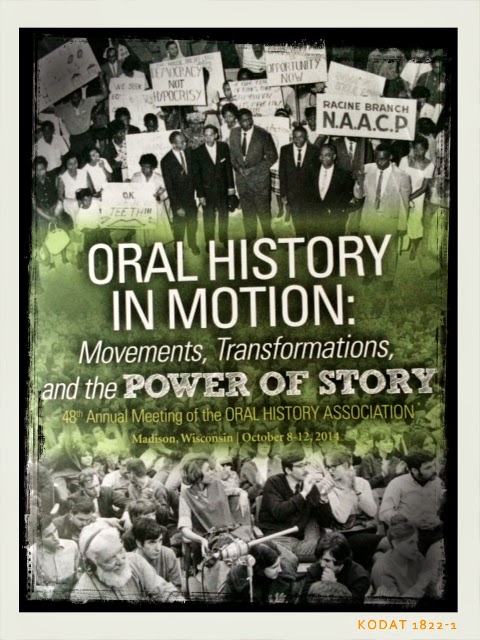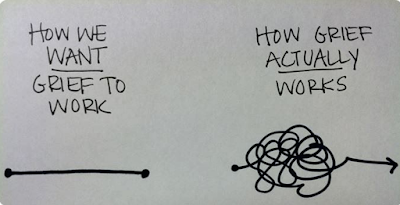To Eric Schneider, With Gratitude
 |
| Eric C. Schneider |
A few months later, Eric sent me a typed letter with a handwritten note. The letter was one recommending me for an internship. The note said, "Everyone should get at least one chance to read their eulogy while they are alive. Here's yours."
I have no clue what the internship was and I don't really recall the speech I gave. But I remember laughing as I took the stage. I know I felt heartened by the positive things Eric wrote in the letter. Certainly, I will never forget the sardonic wit of my mentor and the enormous and generous heart behind it.
Eric Schneider died on March 22, 2017 when a very smart cancer got the better of him. He was 66. He left behind a lot of people who loved him and liked him and respected him immensely. In his wake are a bevy of students and colleagues who were changed by him. I count myself among them.
I wasn't much of a scholar as an undergraduate. I had lots of questions, but at that time, had little discipline or time for sustained thought. I yearned for action and I wanted to do things. I struggled with my own privilege and, at the same time, I had much less of it than many of my Ivy League peers. I also had Catholic guilt to spare. Eric understood all of these things. He challenged my do-goodism without ever disparaging it and he insisted I learn to excavate the structures on which both privilege and inequality rested.
He was scrappy. In my own way, I was scrappy, too. We met there, in that space of liking the fight.
Eric was my advisor before he was my professor. I remember telling him I had declared Urban Studies as my major, in the fall of my sophomore year. He offhandedly mentioned that he taught in the program and co-taught the senior seminar with Elaine Simon, a formidable and razor-sharp anthropologist. I knew I had chosen well. In his class on Community in America, we grappled with urban anomie through Louis Wirth's study of the city, a reading I still assign to students today. Louis Mumford, Robert Bellah, Stephen Thernstrom, Charles Joyner all made appearances. The story of Middletown, USA and the utopian design vision of Dolores Hayden. Those books transformed my thoughts and inspired my intellect.
I read In the Web of Class, his first book, on the heels of E.P. Thompson's The Making of the English Working Class, one of Eric's favorites and a recommedation of his. It was after I'd graduated from Penn and was working in a homeless shelter. Reading his book was a lightbulb moment because I could see how he took Thompson's idea that we all make history, although not always in the context or circumstances of our choosing. I could trace Thompson's influence on his thinking, as he dug deep into the records left by wealthy reformers to find traces of the choices and decisions of poor kids labelled "juvenile delinquents" and their families in Boston. Eric taught me how to read sources against the grain.
His training in urban geography honed Eric's careful attention to both the politics of space and the geographies of culture and politics. This was clear in Capeman and the Vampire, his history of gangs in New York. Smack was different and bigger -- blending cultural, political and economic history with the desire to reframe the discourses around heroin and upend the narratives that had shaped the epic failure that was the War on Drugs. I am hopeful that someone will pick up his unfinished project on the history of murder in the American city and a study of on how to read the changing city through transformations in where, how often and under what circumstances murder occurred.
But even if it remains unfinished, Eric's keen attention to geography, his distrust of the established narrative, his delight in a good story, his talent for lucid and evocative writing and his ridiculously intense work ethic live on in many of us.
Eric worked from the margins of the academy, as did all the faculty at Penn who influenced me most directly -- among them Ira Harkavy and Jeremy Nowak. (All three were adjunct faculty with important roles outside of the classroom -- Ira as a pioneer in university-community partnerships and Jeremy as a founder of the community development loan fund movement. Eric was an able and effective administrator, a dean and a leader in teaching grad students to become teachers.) Eric taught me about the politics of academia, a topic we returned to regularly, including the last time I saw him in January 2017. While my professors at Penn were stars in their respective fields -- folks like Michael Katz, Lynn Hunt, Drew Gilpin Faust, Mary Frances Berry, Tom Sugrue and John Lucy, I never connected with them in the same way. In fact, I had no idea they were famous scholars until I started graduate study almost a decade after I finished my B.A.
The scholar-practitioners were more my speed.
One of the things I appreciated most about Eric was his honesty and his insistence that I do the work. He was not easy on me as a student, and even more recently, he told me to "stop blogging and finish the damn book." As a professor, he had a finely tuned bullshit barometer and would sometimes hand things back that said, "Try it again, you really half-a**ed this," or simply, "Really?" He wasn't always pleased with me, but he was always in my corner. That's a lesson I've carried with me.
Last week, a student came to see me --- upset and angry about a grade he had earned in my course. He is headed for grad school in the fall. I told him that in grad school, everyone will be as smart as he is, and that faking one's way through a reading of a book won't be an option. "You know I think you're brilliant and I support you and want you to succeed. But you need to work harder. You mailed this in." It was the kind of thing Eric would say. I also connected this student with colleagues of mine, encouraged him and pointed out the ways his ideas are unique and even ground-breaking. This is the kind of thing Eric would do.
Dispassionate, and yet passionate.
I regret that I didn't write this and send it to him before he died. I thought he had more time. I've been standing on the shoulders of a giant for a long time and I don't think I was ready to say goodbye.
I will do my best to make sure to keep his memory and the lessons he taught me alive. Many of us will. Eric wasn't a big believer in the afterlife, but I think he'd be glad to know that I will carry his flag. I'll be in good company.









I have seen Eric's influence on you as an academic and a scholar, and a person for a long time. I know how important he was to you. I''m sorry.
ReplyDelete